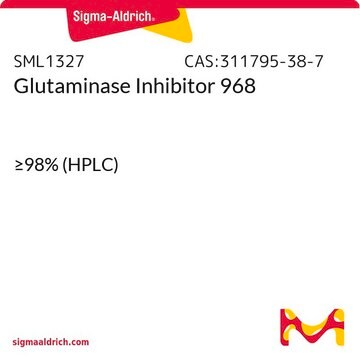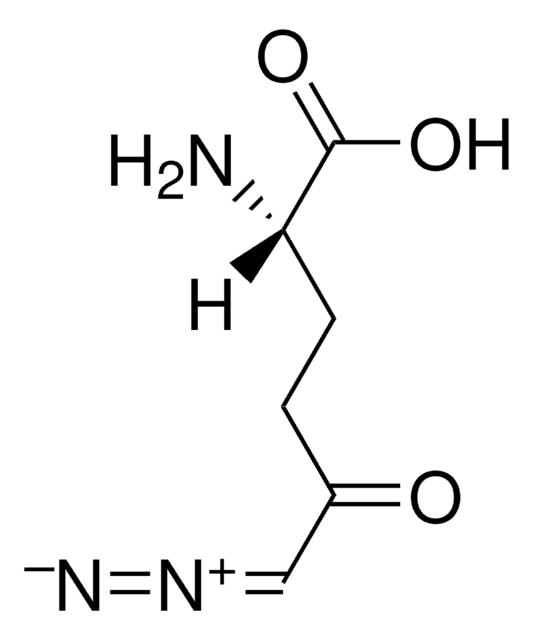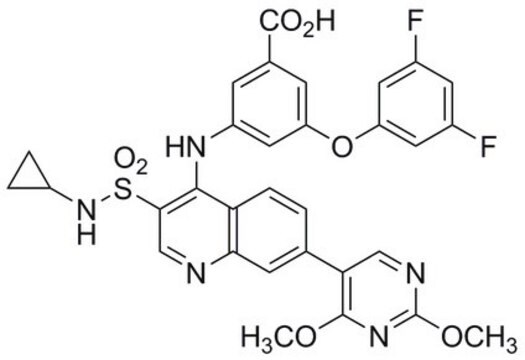352010
Glutaminase Inhibitor, Compound 968
Glutaminase Inhibitor, Compd 968, is a cell-permeable, reversible inhibitor of mitochondrial glutaminase. Represses growth & invasive activity in glutaminase upregulated fibroblasts and tumor cells.
Synonym(s):
Glutaminase Inhibitor, Compound 968, GAC Inhibitor, GLS1 Inhibitor I, KGA Inhibitor I, Kidney-Type Glutaminase Inhibitor I, 5-(3-Bromo-4-(dimethylamino)phenyl)-2,2-dimethyl-2,3,5,6-tetrahydrobenzo[a]phenanthridin-4(1H)-one
Select a Size
Select a Size
About This Item
Recommended Products
Quality Level
assay
≥99% (HPLC)
form
powder
manufacturer/tradename
Calbiochem®
storage condition
OK to freeze
protect from light
color
white
solubility
DMSO: 5 mg/mL
shipped in
ambient
storage temp.
−20°C
SMILES string
O=C(CC(C)(C)C1)C2=C1C3=C(NC2C4=CC(Br)=C(C=C4)N(C)C)C=CC5=C3C=CC=C5
General description
Packaging
Warning
Other Notes
Legal Information
Storage Class
11 - Combustible Solids
wgk_germany
WGK 3
flash_point_f
Not applicable
flash_point_c
Not applicable
Certificates of Analysis (COA)
Search for Certificates of Analysis (COA) by entering the products Lot/Batch Number. Lot and Batch Numbers can be found on a product’s label following the words ‘Lot’ or ‘Batch’.
Already Own This Product?
Find documentation for the products that you have recently purchased in the Document Library.
Our team of scientists has experience in all areas of research including Life Science, Material Science, Chemical Synthesis, Chromatography, Analytical and many others.
Contact Technical Service







